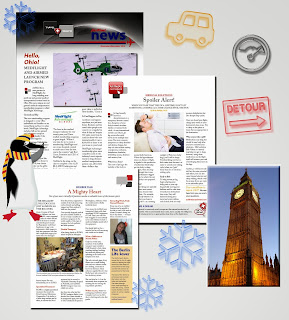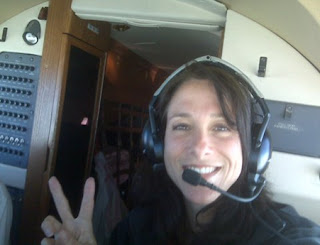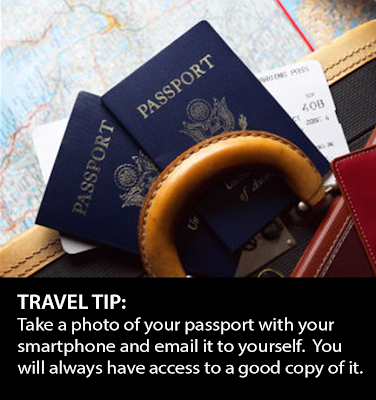 |
| Chris Hutton and his wife Julie |
Sandy Kinkade Hutton has been an AirMed member for the past eight years. When she married Kevin Hutton in 2011, she added both her husband and stepson, Chris, onto her membership.
Chris Hutton is a first year med student at American University of the Caribbean located on Saint-Martin island in the Caribbean. Chris had experienced inability to urinate for several days, and finally made a decision along with his wife, Julie, who is a French citizen, to go to the local hospital to be checked by a doctor.
During what would be fairly routine treatment in any metropolitan medical center, the island medical staff was unable to place a catheter and traumatized Chris’s urethra. Then they managed to slice off a segment of a plastic catheter inside Chris’ bladder. His situation went from bad to worse within hours with concerns of peritonitis mounting. “The island surgeon said he had sliced off the tip of the catheter.” It wasn’t until we were back in the U.S. that the urologist told us it was a foot long piece of catheter,” Sandy said.
After the “oops” moment with the catheter, the Hutton’s knew they needed to get Chris off that island and to a higher level of medical care back in the United States. Sandy told him to make the call to AirMed.
Once the call to AirMed was made, AirMed put its operation in motion. “We talked to AirMed the entire time. We heard from them through email and through phone calls, they kept us informed every step of the way,” Sandy recalls.
Chris states "Lying in pain in a bed at night there at the island's hospital, it was the worst feeling, to feel a million miles away from home. Once the crews arrived, everything changed. I knew from the instant they walked in that I was safe, and on the road to recovery."
AirMed arrived, and Chris was transported to the University of Miami Hospital early the next morning. Because it was an international flight, U.S. Customs came to the ramp to check all passports. Chris was transported by ambulance to the hospital. “AirMed even arranged for a taxi to take Julie to the hospital when she was finished with Customs. It was just a level of completeness—AirMed saw to it that nobody was left stranded.” said Sandy.
Chris was taken into surgery in Miami to remove the catheter and assess the situation. A new catheter was inserted and remained in place for 3 days. It was removed, and Chris and Julie were able to return to St. Martin to resume his medical school studies with a new understanding of what it is like to be the patient.
 |
| Kevin and Sandy Kinkade Hutton |
“As a flight nurse, I remember arriving at hospitals and the sigh of relief on people’s faces when the flight crew would show up,” Sandy said. “For the first time, I was on the other end of that scenario. I was on the patient side, and I knew professionals were on their way to get Chris off the island and that they were fully able to take care for him. It was such a relief once I knew the medical crew was on that island.”
Dr. Kevin Hutton added, “We want to really stress the fact that you never think it’s going happen to you. You simply never know when something like this will happen. Had we not had the AirMed membership, we’re not sure how this whole thing would have transpired.”
Sandy said, “I’ve seen so many times where people think their health insurance will cover this type of thing and it doesn’t. I’ve kept my AirMed membership all this time because you’d like to think that healthcare is good everywhere, especially on an island known for attracting tourists, but it is not.”
Chris and his family knew that AirMed had their back. Since he’s been back at school, Sandy has helped Chris write a protocol for the medical school he attends to try and put some sort of medevac membership policy in place. “ In the event of a medical emergency such as this, being prepared is the key,” she said. Chris commented, "I don't know what we would have done without AirMed membership. I am so grateful that my family is covered for the future."
Kevin added “We will NEVER be without an AirMed card.” Several of the Hutton’s family members are also new AirMed members.















.jpg)






